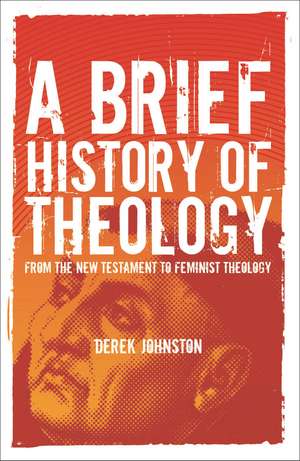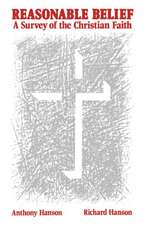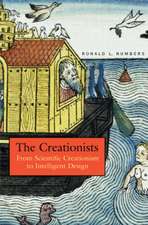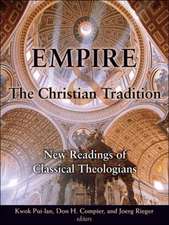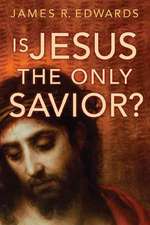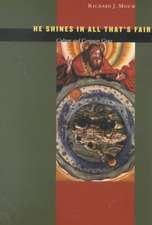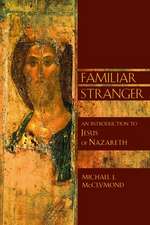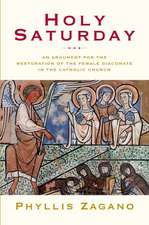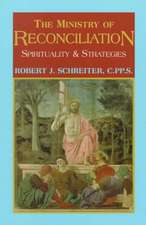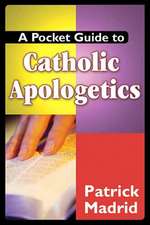A Brief History of Theology: From the New Testament to Feminist Theology
Autor Derek Johnstonen Limba Engleză Paperback – 31 oct 2008
Preț: 95.30 lei
Preț vechi: 154.51 lei
-38% Nou
Puncte Express: 143
Preț estimativ în valută:
18.24€ • 19.87$ • 15.37£
18.24€ • 19.87$ • 15.37£
Carte tipărită la comandă
Livrare economică 23 aprilie-07 mai
Preluare comenzi: 021 569.72.76
Specificații
ISBN-13: 9781847060914
ISBN-10: 1847060919
Pagini: 304
Dimensiuni: 138 x 216 x 18 mm
Greutate: 0.36 kg
Editura: Bloomsbury Publishing
Colecția Continuum
Locul publicării:London, United Kingdom
ISBN-10: 1847060919
Pagini: 304
Dimensiuni: 138 x 216 x 18 mm
Greutate: 0.36 kg
Editura: Bloomsbury Publishing
Colecția Continuum
Locul publicării:London, United Kingdom
Caracteristici
There is currently a need for concise, short introductions to theology, this book will serve that purpose well.
Cuprins
Introduction 1. The First Christian Theologians: St Paul 2. The First Christian Theologians: the Gospel Writers 3. St Augustine of Hippo: a Father of the Church 4. St Thomas Aquinas: Revelation and Reason 5. Martin Luther and the Protestant Reformation 6. St Ignatius Loyola and John Calvin: The two sides dig in 7. John Wesley and Evangelical Revival 8. The Contexts of Modern Theology 9. Friedrich Schleiermacher and Religious Feeling 10. John Henry Newman and Catholic Renewal 11. Karl Barth and a Theology of the Word 12. Dietrich Bonhoeffer and the Cost of Discipleship 13. Karl Rahner and Human Transcendence 14. Rosemary Radford Ruether and Women-Church 15. Walter Brueggemann and the Biblical Imagination 16. Don Cupitt and being Adrift Conclusion Further Reading
Recenzii
"At first glance, it would seem impossible to write a history of Christian theology that runs only 300-odd pages. However, this book is not so much a history of theology as it is a sampling of key figures from that history. These theological "snapshots" are designed to provide an introduction to readers who have little or no familiarity with the subject. Johnston (former vice principal, Midleton Coll., Ireland) has over 30 years of experience teaching theology, and he is effective in explaining difficult concepts in a clear and simple manner. He also includes helpful definitions of theological terms throughout the book, assisting the reader in grasping the material. Johnston generally makes excellent selections in terms of theological figures to cover, featuring Paul, gospel writers, Augustine, Aquinas, Luther, Loyola, Calvin, Wesley, Schleiermacher, Newman, Barth, Bonhoeffer, Rahner, Reuther, Breuggeman, and Cupitt. Johnston also provides brief historical discussions that link the different periods covered by these theological writers. Recommended for all libraries.
This concise overview of the history of theology consists of 16 chapters accompanied with a further reading list...The structure of the book clearly show that author's focus is on modern theologies. The volume is written in an easy-to-understand style. Moreover, the author's use of a number of headings and his explanation of basic theological terms (that appear in boxes) will assist the reader to grasp the content of the volume that covers a wide range of theologians and their thoughts.
[T]his is not a book for established scholars or for advanced students in theology. It is written with beginners in mind, and for the most part it is well-suited for the purpose. Johnston avoids difficult theological jargon, and his quick and efficient movement across traditions and perspectives maintains interest and gives one a sense of the interminably conversational nature of theology.
This concise overview of the history of theology consists of 16 chapters accompanied with a further reading list...The structure of the book clearly show that author's focus is on modern theologies. The volume is written in an easy-to-understand style. Moreover, the author's use of a number of headings and his explanation of basic theological terms (that appear in boxes) will assist the reader to grasp the content of the volume that covers a wide range of theologians and their thoughts.
[T]his is not a book for established scholars or for advanced students in theology. It is written with beginners in mind, and for the most part it is well-suited for the purpose. Johnston avoids difficult theological jargon, and his quick and efficient movement across traditions and perspectives maintains interest and gives one a sense of the interminably conversational nature of theology.
